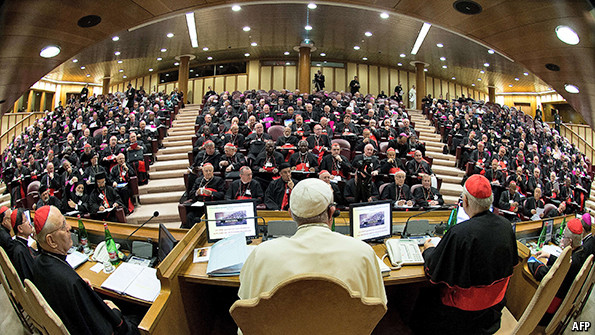It was beginning to look like an election about nothing, but with the selection of Wisconsin’s Paul Ryan as his running mate, Mitt Romney has made sure that this election will finally be about something.
And that something is our long term health care debt. Everyone knows that we absolutely need to do something about it, and that the solution will be difficult and involve costs (both real and political) that will hurt–and hurt bad. Ryan is one of the few that has been explicit about a plan for addressing this problem. He will be hammered for his plan to slash Medicare, but perhaps his most important role will be to press Democrats to come up with their own plan for addressing our long term health care debt. It will be good for the country to have an open, honest discussion about these very serious issues–especially because so few have the political courage to do so.
As we all know very well around here, Ryan is an explicit and passionate Catholic–and many of us have wondered whether he accepts the Church’s teaching about our duties to the poor. Does he really understand and accept Catholic Social Teaching? Does he agree that universal health care coverage should be the goal? The US Bishops have hammered him on his proposed budget and larger economic plan and, in a very interesting development, they now have a very complex relationship with the GOP presidential ticket.
Whatever we can say about his views, it is good for the country that we will now have this debate. It is finally an election about something. And something very, very important.





I agree with what you say about Ryan, but I am not so sure that up until now the campaign has been about nothing. To me it seems that more so than in any campaign in my living memory, the debate has more explicitly touched on our most fundamental beliefs, on the role of the market and the role of the state, the relationship between the individual and the community, etc. I think that is a good thing, but the bad thing is how impoverished those fundamental beliefs seem to be on both sides.
One small quibble with an otherwise commendable post. The fourth sentence of the second paragraph seems to suggest that Democrats have failed to offer any alternative budgetary scenario that addresses unsustainable health care costs. While technically true in the sense that no specific plan has been put forward, both the Simpson-Bowles Commission as well as the “Gang of Six” proposal did offer a general framework as well as some specific policy mechanisms to reduce costs including substantial cuts to Medicare as well as an increase in the eligibility age. In addition to garnering bi-partisan support it is also important to note that Rep. Ryan ultimately criticized and rejected both of these plans in part because of their calls for increased revenues.
I couldn’t agree more with the overall post, except for this bit:
“And that something is our long term health care debt. Everyone knows that we absolutely need to do something about it, and that the solution will be difficult and involve costs (both real and political) that will hurt–and hurt bad.”
I think this is engaging in what Pres. Obama likes to call “false equivalency”. I see absolutely no acknowledgment from progressives, most especially Catholic progressives, of the looming health care debt problem. Michael Sean Winters & many dotCommonwealers, for example, are openly dismissive of any talk of entitlement reform as nothing but a Trojan horse for Randian objectivism-masquerading-as-reform. Part of the the problem is, no doubt, some of Ryan’s own initial proposals (which he has since significantly revised), but it is simply & categorically false when they state, as every Commonweal post since the announcement does, that Ryan wants to “end Medicare.”
Also, to be technically correct, Ryan voted against the Bowles-Simpson commission report on the basis that it relied too heavily the ACA to reduce health care costs (which could be faulted for relying too heavily on tax increases scheduled to take effect in 2014).